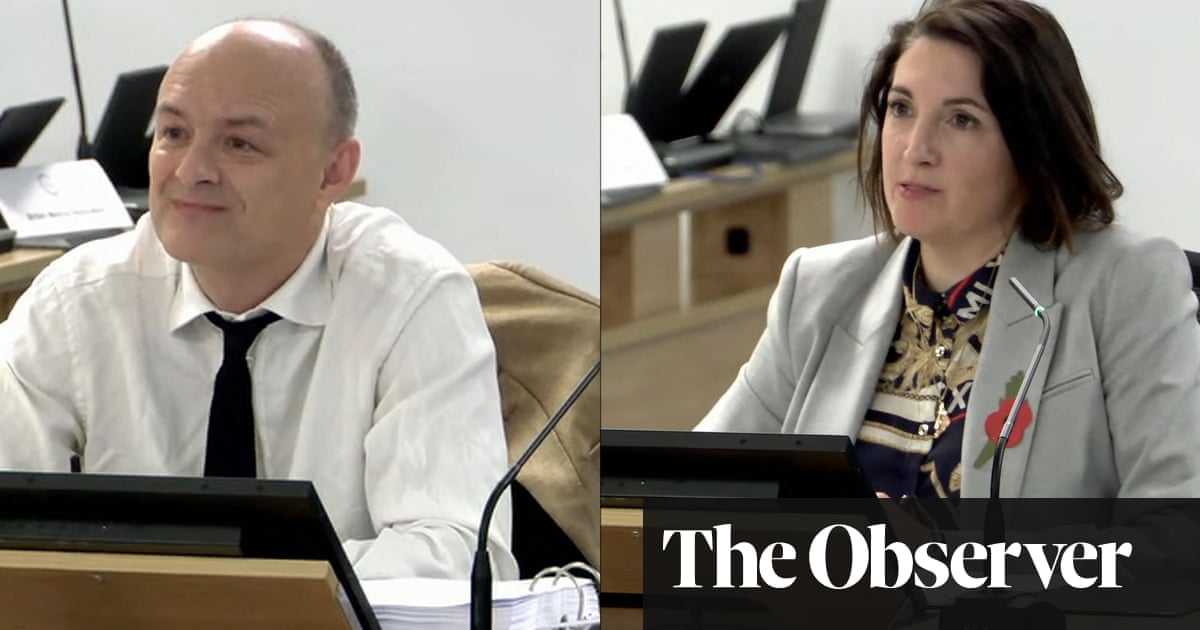
The Warsaw conference on Iran has been and gone. It was heralded loudly — if not always convincingly — by the US. The White House let it be known that it might be an opportunity for the formal construction of a powerful coalition to contain and even push Iran back in the Middle East. There were suggestions that we would see another step along the path to the normalization of Israel as a regional state actor and get more clarity on the outlines of the Middle East peace plan that Jared Kushner is supposed to be masterminding.
As it happens, there was a certain amount of spectacle. Sixty countries sent representatives. The attendance of Israeli Prime Minister Benjamin Netanyahu alongside some senior representatives of Arab states caused temporary excitement, especially when the Israelis tried quietly to release and then had to remove unauthorized footage of some of the closed discussions. And it is true that there seems to have been general consensus on the challenge that Iran represents. But, in the end, the parallel meeting in Sochi of Iran, Russia and Turkey, the absence from Warsaw of senior representation from some of the key European states — not, I hasten to add, the UK — and of the EU’s High Representative for Foreign Affairs and Security Policy, Federica Mogherini, and some confusion about what exactly was discussed and concluded seems to have taken much of the shine off the event.
So in the end I paid rather more attention to two recent interviews with senior Iranians. One, in The Times of London, was with Masoumeh Ebtekar, who from 1979 to 1981 was the notorious spokeswoman for the students who took American diplomats hostage and is now vice president for women’s affairs. The other — in Der Spiegel — was with Mohammed Javad Zarif, Iran’s Foreign Minister. Both, in their different ways, offered evasion rather than clarity in response to simple questions. This is, of course, a characteristic from time to time of politicians everywhere. In Iran, it looks like a way of life — not so much “taqiyya” as “tawriya.” But you can still learn a lot, if you pay enough attention.
Both Ebtekar and Zarif simply avoid the most difficult questions by accusing their opponents, the West and particularly the US, of “double standards.” Ebtekar does it directly, saying that is the reason Iran opposes the US: Nothing personal, simply business. Zarif does it in a more roundabout way. With a straight face, he says that US criticism of Iran is “laughable,” immediately after he has also said that Iran “has always supported Jews: We’re just anti-Zionist,” which will have the whole of Tel Aviv, large parts of New York and North London, and the few Jews actually left in Iran holding their sides. He then says that Iran’s missiles are purely defensive; the US and others are the ones behind disorder in the region because they support other states; the US is in no position to criticize Iran over Syria because it supports Israel; and in any case the Iranian intervention in Syria is all part of being a good neighbor. And so on.
This is pure “whataboutism.” And it brings us to the heart of a problem we all have with Iran (as with any state or organization founded upon the principles of political Islamism): Its claim to be the only disinterested, authentic and truly moral actor in the region. That really is laughable. But it also springs from the contradictions at the heart of the Islamic Republic. As Tony Blair recently asked, is it a state with an ideology or an ideology with a state? Are its actions divinely sanctioned (as the doctrine of Wilayat Al-Faqih, with its insistence on the infallibility of the immanent Imam, suggests) or is it just another bunch of human beings trying to do the best with the world as it is and making the same compromises as the rest of us — not between the good and the bad, but between the quite good, the probably bad and the possibly not-so-bad? The answer may be that it 014promises as the rest of us –is trying to be both.
Ebtekar, whom The Times claims is “a moderate” now, expresses no regrets about her part in the grotesque mistreatment of the US diplomats. She won’t hear a word said against Ruhollah Khomeini; the revolution, she claims, was “idealistic,” it just took a wrong turn somewhere. Yet she has apparently sent her children to be educated in the US, as indeed she was. And she has vocally opposed the coercion of women by the moral zealots of the regime.
Zarif takes much the same line in a different context. Iran is always the victim: From the war with Iraq (which ended, let us remember, over 30 years ago, before most Iranians were born. I don’t remember my father or uncles — who all fought — ever going on about the Second World War, which ended 10 years before I was born) to US sanctions, to the way it is constantly misunderstood in the West, to Israel’s “unjustified” attacks on Iranian and Hezbollah targets inside Syria, which he describes as “assaults on international law” (I can’t help it, I’m laughing again).
Queen Victoria said of her famously self-righteous Prime Minister, William Gladstone, that she didn’t mind him having the ace of spades up his sleeve during every argument with her, but she did mind him pretending God had put it there. And that is the problem with every religious regime in history: They think being religious justifies anything. Yet Iran’s behavior in Syria has had nothing religious about it at all — any more than in Yemen, Iraq or Lebanon, let alone the acts of terror it has commissioned over the years in Kuwait, Saudi Arabia, Bahrain, Beirut, Bangkok, Basra, Buenos Aires, Bulgaria and so on.
When pressed on the recent discoveries by national security authorities of new plots for attacks in Europe, Zarif initially suggests that this is a conspiracy. But he then interestingly adds a remark about the activities of intelligence agencies and says that there are and have been no plans for an attack in Europe “which would have been ordered by the Iranian government.” This subjunctive added further nuance to a form of words that could suggest the planning was actually done somewhere outside the purview of the government, something we all suspect happened during the campaign to assassinate dissidents abroad overseen by elements within the intelligence structures of the Islamic Republic in the 1990s.
Now, any attempted triage between “moderate” and “extremist,” “reformist” and “Principlist” inside Iran is probably misconceived. The situation is more complex than that. But it is also true that there are competing groups within the country who differ principally on the pragmatics of statecraft. Is it better to seek a form of ideological purity that gives its proponents the moral high ground in any dispute but risks falling victim to the intransigence that saw the war with Iraq last six years longer than necessary; or openly to recognize that Iran operates in the murky world where the best is always the enemy of the good, the adequate will do to be going on with and politics is the art of the possible?
The French philosopher Michel Foucault was sent to Iran in 1978 by the Italian newspaper Corriere della Sera to cover the revolution. Enchanted by the apparent prospect of resistance not just to power but to what he saw as the entire oppressive epistemological apparatus of the West, he believed the revolution represented a rejection of historically grounded politics in favor of the reinvention of the resistant individual and a perpetual spiritual revolution.
Like many leftist ideologues, Foucault — who never saw an anti-Western heterodoxy he didn’t like — was seduced by absolutism. But, if religion is to live in the real world, it has to become political. Politics means sustained attention to the worldly needs of ordinary people in this, not the next world, and an ability to compromise in order to achieve anything. That in the end compromises religion, as Saint Augustine knew and many former Iranian revolutionaries have subsequently found out for themselves.
As Tony Blair recently asked, is Iran a state with an ideology or an ideology with a state?
Sir John Jenkins
And that is the real dilemma of the Islamic Republic. If it’s Islamic in the Iranian sense, then it inhabits a realm of absolutes in which the word of the Imam is final. If it’s a republic, then it is subject to the same laws of history as any other republic and needs to deal with what the great German philosopher, Immanuel Kant, called the “crooked timber of humanity.” And that’s not a matter of double standards: It’s an eminently practical question of choice.
People always allege double standards when they don’t want to choose, or be seen to have chosen. Both Zarif and Ebtekar, in their different interviews, showed how hard it is to make that choice or admit that they need to do so. They want it both ways — to sanctify Khomeini or the supreme leader as the infallible guide to salvation (and to righteous behavior while we’re waiting) and to try to resolve the contradictions of the real world, in which you can’t have everything you want all the time and other people’s views matter. To choose the former is to choose absolutism and continued confrontation, which is precisely what causes most of the region and the international community to view Iran with suspicion. The latter is to choose messy normality. Normality doesn’t necessarily mean friendship, but it does mean recognition that other people matter. That there are such things as national interests. That history is a better guide to the future than revelation. That, while neither man nor woman can live by bread alone, bread matters enormously. And that to get along with your neighbor, you really need to stop throwing stones over the fence.
And that, it seems to me, not conferences in Warsaw or anywhere else, will make the real difference. Iran can certainly be contained and deterred rather better than we do at the moment — and we need to keep the US engaged in order to achieve this — but, for Iran to become a good neighbor, a more normal state and a more open and successful economy, delivering for all its people and not simply the well-connected, it has to decide it wants to do so. As it has always been, it’s up to Tehran. After all, there’s probably a limit to how long ordinary Iranians will wait.
Sir John Jenkins is an Associate at Policy Exchange. Until December 2017, he was Corresponding Director (Middle East) at the International Institute for Strategic Studies (IISS), based in Manama, Bahrain, and was a Senior Fellow at Yale University’s Jackson Institute for Global Affairs. He was the British ambassador to Saudi Arabia until January 2015.
Disclaimer: Views expressed by writers in this section are their own and do not necessarily reflect Arab News" point-of-view












